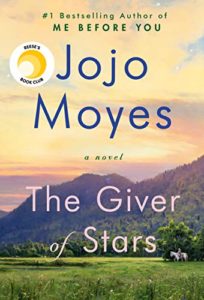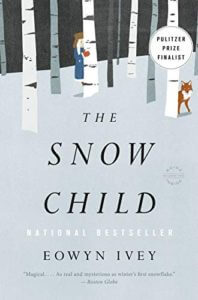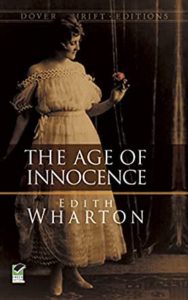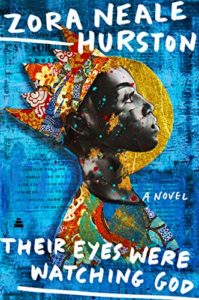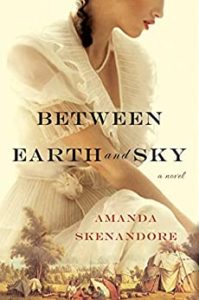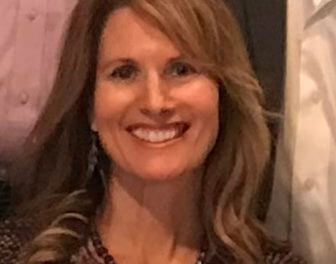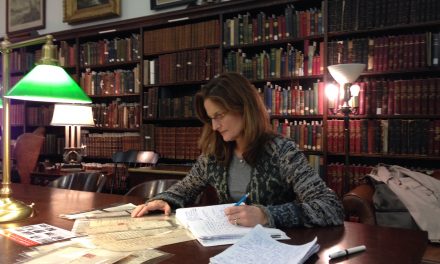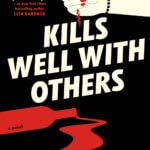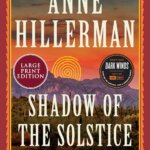Amanda Skenandore joins me today. I haven’t gotten the Covid vaccine yet, so I remain in semi-isolation. But I’d wear a mask if this was an in-person interview rather than a long-distance e-mail interview and I’m sure Amanda would, too. Amanda is the author of two historical novels, The Undertaker’s Assistant and Between Earth & Sky, winner of the 2019 American Library Association’s Reading List Award for Best Historical Fiction. Her third novel The Second Life of Mirielle West comes out in July, 2021. She lives in Las Vegas with her husband and their pet turtle Lenore.
SS: Thanks for joining me, Amanda. Do you have a day job? If so, is it a distraction, or does it add another element to your writing?
AS: In addition to writing, I work part time as an infection prevention nurse. It’s never felt like a distraction, but for a while the two parts of me, nurse and author, existed separately from one another. More and more, however, I find myself drawn to writing stories with some medical component—embalming, leprosy, or most recently, early nurse training schools. Conversely, during the pandemic, writing became a lens through which I could better understand my work as a nurse.
SS: Do you believe in writer’s block? How about reader’s block?
AS: For the longest time I didn’t believe in writer’s block. Serious authors simply hunkered down and wrote, I thought, whether they were inspired or not. But this past fall, as we reeled from one surge of the virus to the next, I simply couldn’t bring myself to write with any consistency. Work at the hospital was stressful, and the story I was working on didn’t engage me. I bargained with myself—just write 200 words and you can stop for the day. Berated myself—a real author wouldn’t be struggling like this. Nagged myself about my looming deadline—one year and this book is due to your editor … ten months … eight months … None of it worked. In the end, I had to throw out my old story and outline something entirely new. I also sought the help of several writer friends to help keep me on track and accountable.
As for reader’s block, I’ve never been unable to bring myself to read, but my taste shifts depending on my mood, and there are some books I simply can’t get into. I used to be of the mind that if I started a book, I had to finish it. But there are just too many good books waiting in my to-be-read pile! So now I give myself permission to put down a book if it isn’t speaking to me. (Except for my book club books—I always try to finish those regardless. Dissent, after all, makes for great discussion.)
SS: What would a fly on the wall see if he watched you while you are writing?
AS: What a fun question! A fly on the wall in my writing room would see me sitting frozen, staring at the screen a lot. Then, finally, typing something, only to stare a while longer and then hit the delete key. I talk aloud sometimes too. Try out bits of dialogue or pantomime certain movements I’m trying to describe. I slouch, pick at my nail beds, and make several trips back and forth to the kitchen for more tea. Eventually, after more typing and deleting, a words stick to the page.
SS: My routine is rather like that. I require total silence and coffee. The family dog has a new toy, a pig that makes grunting sounds that are truly obnoxious, and he brings it to my study and sits behind me and chomps on it. The piggy grunts drive me totally insane. Do you generally write in one genre? If so, what is it? And what can readers expect from one of your books?
AS: I write historical fiction. Most of my stories are set in Victorian-era America, although I recently forayed into the 1920s and loved it, so I might be going back in future novels. I’m drawn to the experiences of women and others whose voices seldom make it into history textbooks. I’m a sucker for a little romance. In one way or another, my characters always seem to be seeking a sense of home and belonging, even though the setting and plot of my novels are each quite different.
SS: I’m drawn to that sort of story as well, Amanda. Tell me, what you’re currently reading?
AS: I’ve just begun reading The Giver of Stars by Jojo Moyes and am loving it! What rich language and descriptions she uses. The story hooked me right away, and I find myself thinking about it throughout the day when I’m not reading.
SS: Which book(s) do you return to again and again?

SS: What was your first recognition/success as an author?
AS: My first book, Between Earth and Sky, won the American Library Association’s Reading List Award for Best Historical Fiction in 2019. I didn’t even know the book was being considered, so it was a complete (and wonderful!) surprise. I felt truly honored to be recognized by such an esteemed group, and I’m so grateful to the librarians who championed the book. You have to believe in your book regardless of reviews and accolades, but it’s so rewarding to know the story meant something to readers.
SS: What’s something memorable you’ve heard from your readers/fans? What’s been the best compliment?
AS: A reader wrote me right after the Capital riot in January. She and her book club had just read The Undertaker’s Assistant, which takes place in the months leading up to the 1876 election, and highlights the terror and violence used to silence Black voters. Having read the book, the reader told me, helped her see through the unfounded attempts to use the 1876 election as a precedent to overturn the results of the 2020 election. As a writer of historical fiction, I’m a firm believer that understanding our past is essential for creating a better and more just future. This reader’s letter gave me hope in that belief.
SS: What is your most recent book? In twenty-five words or less, tell me why your book should be a reader should start your book next.
AS: My next book, The Second Life of Mirielle West, releases July 27th. As we grapple with the COVID-19 pandemic, readers will find strength and inspiration in Mirielle’s struggle against disease (leprosy), stigma, and lifelong quarantine.
SS: Is there a phrase or quote about writing you particularly like or that inspires you?
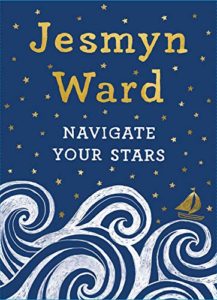
SS: What are common traps for new authors?
AS: One of the common traps I see with new writers is the tendency to give every moment in a scene the same narrative weight. This happens, and then this happens, and then this happens, one thing after another, like a steady drum beat until we reach the end. The pacing feels very metronomic and the emotional impact is muted. Not all parts of a scene are equally important. Some things can be conveyed with a single line, others can take a paragraph or even a whole page to really explore. In most great scenes, time both compresses and expands, which varies the pace and helps the reader home in on what’s important. When I’m reading new authors’ work, I try to help them identify the most important moments of their scenes and encourage them to examine the narrative weight. Maybe they need to add more description. Or pare back the description in other places. Or play with the punctuation or structure. A tweak here and there can make a previously lifeless scene so much more engaging.
SS: How do you get into the mind-set of a person in the 1920s as you did in your book?
AS: I like to try to experience—insomuch as I can—what my character would have been experiencing. For example, when writing my latest novel, I read books written in that era by authors like F. Scott Fitzgerald, William Faulkner, and Anita Loos. I listened to jazz and early honky-tonk music. I watched silent films. I spent an entire afternoon flipping through the pages of Sears, Roebuck, and Company’s 1925 Fall/Winter catalog (via microfilm). I visited a classic car museum. I made gin cocktails and experimented with Southern cooking. In the end, though, I always remind myself that my characters’ basic wants and needs—love, security, self-determination—transcend any particular era and are not so different from my own.
LIGHTNING ROUND:
SS: When writing, are you a night owl or morning person? Morning person, but I’m trying to train myself to be an anytime person.
SS: Pantser or Plotter? Plotter
********************
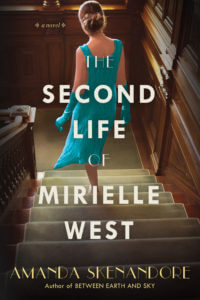
********************
An excerpt from The Second Life of Mirielle West:
Dr. Sullivan arrived shortly after and examined her hand, glancing but a moment at the burn before focusing on the back of her thumb. “How long have you had this lesion?” he asked.
Lesion? Mirielle flinched at the ugliness of the word. It wasn’t a lesion at all, only a lightened blotch of skin.
More questions followed. Had it appeared gradually or suddenly? Had she noticed other lesions on her body? He bade her undress and prowled around her. She was used to men looking at her, but not unclothed and not in this way—lips flat and eyes narrowed as if she were a vexing word puzzle in the Saturday Evening Post. Raise your right arm. Raise your left. Sit down. Hold out your feet.
She complied until he hollered to the nurse for a scalpel and specimen slides.
“Hold it right there.” She reached for her stockings and chemise. “Just what do you mean to do?”
“Don’t dress. You’ve got other lesions too. One on your back, two on the medial aspect of your thigh, one on your—er—derrière. I need samples to examine under the microscope.”
She craned her neck to see the offending spots. “Are you sure it isn’t just poor circulation?”
“Stand still,” he said by way of answer. He scraped the edge of the scalpel over a small, irregularly shaped area of pale skin on her thigh.
Mirielle felt nothing. Not pain or discomfort. Not even a tickling sensation. Had she not been watching, she wouldn’t have known the blade was on her at all. He smeared the flecks of skin and tissue onto a glass slide, then moved to the next spot.
“Is it cancer?”
“I’d rather not speculate. But you’ll have to remain here until we have a definitive diagnosis.”
“At the hospital?”
“Yes, here in the isolation ward.”
“That’s impossible. I’ve got children. A ten-month-old who’s teething.”
He passed the slides off to the nurse, then rolled up his shirtsleeves and scrubbed his hands and forearms in the basin of disinfectant by the door. “Better for them that you remain here.” Then, he shut the door, locking her inside.
********************
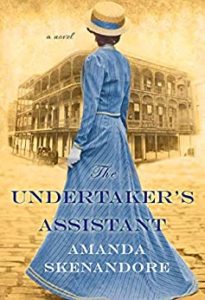
The Undertaker’s Assistant
Between Earth and Sky
********************
You can follow Amanda on social media here:
Website | Facebook | Instagram | Twitter
********************
This post contains Amazon Affiliate links. As an Amazon Associate, I earn a small amount from qualifying purchases.

